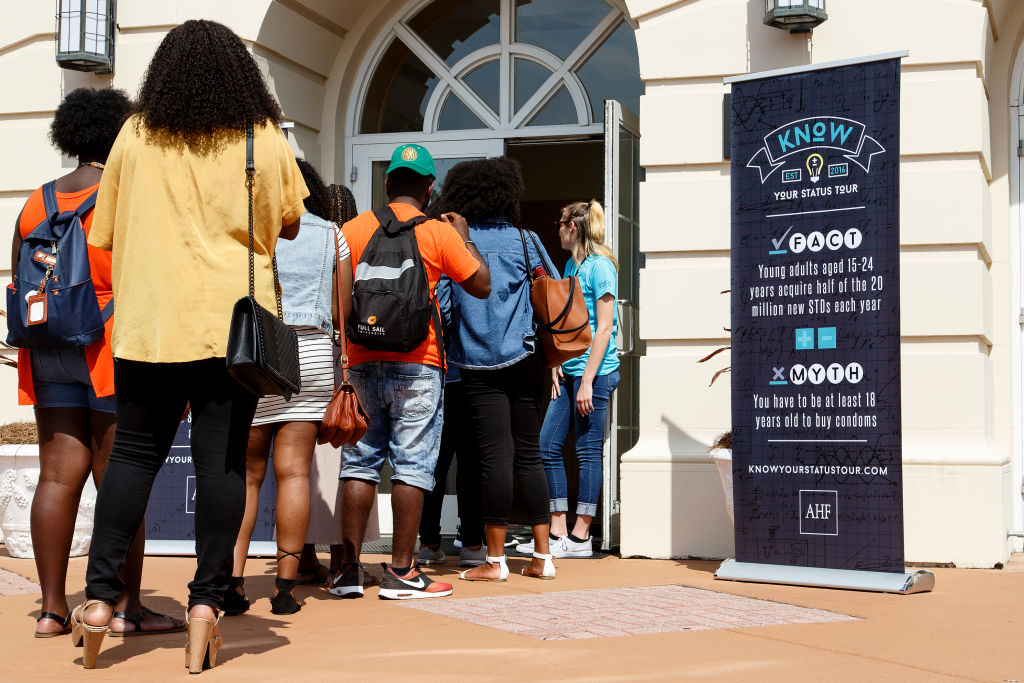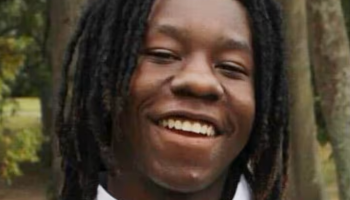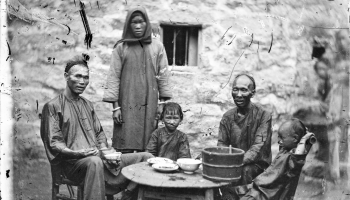
A general view of students at FAMU students waiting outside before entering Lee Hall before the start of the Know Your Status Tour on the campus of Florida A&M University on April 12, 2017, in Tallahassee, Florida. | Source: Don Juan Moore / Getty
Students at Florida A&M University (FAMU) shocked the HBCU community earlier this month when they sued the state of Florida and the board of governors for the state’s university system alleging they’ve consistently underfunded the historically Black college for decades. That shock could turn to awe if the lawsuit is not only successful but also spawns similar legal claims across other HBCUs.
Six students filed a federal lawsuit claiming that FAMU being underfunded violates Title VI — a civil rights law making it illegal to discriminate on the basis of race, color, or national origin in any program or activity that receives federal funds — and the 14th amendment, which granted citizenship to former slaves.
The lawsuit alleges that FAMU received less funding for students compared to predominately white institutions (PWIs) in the state of Florida such as the University of Florida and Florida State University. The complaint adds that the alleged funding being held back from FAMU since the late 1980s is more than $1.3 billion.
FAMU is the highest-ranked public HBCU in the country according to the U.S. News and World Reports annual HBCU rankings. However, it is far from the only HBCU that has been impacted by alleged underfunding from their respective state.
The students’ courageous lawsuit could cause a chain reaction and empower other students at public HBCUs across the country to try to get the money that their schools deserve.
Fort Valley State University in Georgia has been underfunded by approximately $577 million between 1987 and 2020, according to Forbes. Senior Class President and White House Initiative HBCU scholar Miykael Stith told NewsOne that Fort Valley State students are watching how the FAMU lawsuit plays out.
“HBCU students often get the short end of the stick when it comes to funding, especially the smaller schools. I think we’re all just interested in what the outcome will be,” Stith said during a recent conversation. “I wouldn’t be surprised if an HBCU in Georgia ends up following FAMU.”
FAMU and HBCUs in general have had a strong history of students taking power into their own hands to gain equity and equality. HBCU students on the campus of North Carolina A&T State University started the sit-in movements of the 1960s, FAMU students then followed the lead of the group appropriately named the “A&T Four.”
Even recently, HBCU students were on the front lines of the protests following the police murder of George Floyd that prompted one of the most significant racial awakenings in American history.
The need for adequate funding at HBCUs is paramount. HBCUs need monetary flexibility similar to PWIs so that they can eliminate problems that exist on their campuses and serve their students better. At many HBCU campuses, in particular, the allocation of resources can cause some tension between students and the administration.
Melvin Harris Jr. is the Editor-in-Chief of The A&T Register on the campus of North Carolina A&T State University. He says that he has witnessed firsthand how some of his peers have been directly affected by the funding issues. He also says that he spoke to A&T Chancellor Harold Martin about these issues.
“I have witnessed some close friends of mine miss out on housing because A&T did a bad job with setting up housing and admitting too many students which left some people without a place to stay,” Harris Jr. told NewsOne. “I actually talked to the Chancellor about this and he said in order to get more students’ wants on campus we need to admit more students. So with a growing student population, the Chancellor expects to grant more of those wishes.”
https://twitter.com/SIfill_/status/1573395586879029258?s=20&t=6GEjCpxACqB1ykszkpzQqA
North Carolina A&T State University is the most underfunded HBCU in the country. According to Forbes, A&T has been deprived of approximately $2.7 billion over the last four decades.
“As a student leader I have experienced the impact from a lack of funding. My major, Mass Communications, doesn’t always have the resources/ opportunities we should be exposed to,” Stith, of Fort Valley State, said. “Sometimes it is frustrating because we don’t always get the push we need or the attention other majors get. It’s hard for non-stem majors to get opportunities and internships.”
The way that underfunding can impact HBCUs can manifest itself in a variety of ways. From lack of opportunities to the lack of resources and increased campus tensions, It’s clear that these institutions and these students deserve better.
The bravery of these students at FAMU could start a movement that will result in these institutions getting the money that they are owed.
SEE ALSO:
Dan Cox’s HBCU Visit Falls Flat As MAGA Republican Woos ‘Nearly Empty’ Morgan State Crowd
No Accountability For HBCU Bomb Threats Prompts Uncertainty On Black Campuses

























